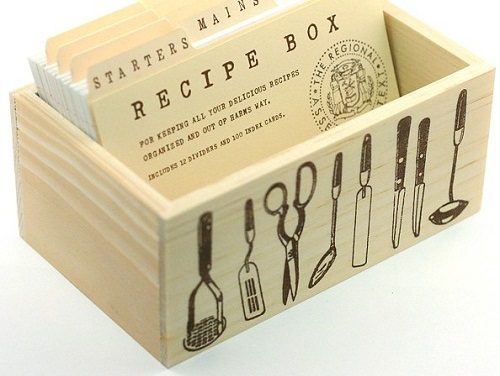Recipes: scripture or template?
June 18, 2020 by DarcieUnderneath almost any post I see on social media that has a photo of some tasty food, you can inevitably find a request for the recipe. Facing cooking fatigue, people want to find new things to make for their families, and what better way than discovering a dish already tested by someone close to you? How we treat the recipes we get depends on several factors, including our overall cooking experience. Writing for Eater, Navneet Alang eloquently explains why we should view recipes more like templates than unassailable scripture.

Alang notes that, especially in stressful times like these, strictly following a recipe can be calming, “the practice of repeating established, sequential steps a comfort when the world feels uncertain. That’s the pleasure of cooking sometimes: not just that you’re creating sustenance, but that you get the satisfaction of “first this, then that.” While noting that some recipes require precision, dogmatically following recipes to the letter can cause us to lose sight of the goal as well as hamper our ability to grow as a cook.
Employing what he describes an “intertextual approach to food”, Alang notes that using recipes as a template instead of slavishly adhering to the script can teach us how to be better cooks. He explains this “intertextuality” as “the idea of taste as a kind of melody — the bass notes of umami, the highs of acid or heat or bitterness, the midrange of earthiness — but also of cooking as a skill that emerges from how you put bits of technique and ingredients together.” For comparison, he notes the contrast between a traditional cookbook that features a collection of recipes to one like Samin Nosrat’s Salt, Fat, Acid, Heat, which is more like “a cooking philosophy” than a blueprint.
It’s easier to riff off a recipe if you have a broad base of experience, so it’s understandable that novice cooks fear dipping a toe into experimental waters, but doing so is a great way to learn more about how different combinations of flavors or different techniques can be employed to create something even better than what is printed on a recipe card or in a cookbook. Alang advises cooks to “live a little — allow yourself the freedom of a little blasphemy.”
Categories
- All Posts (6940)
- Antipasto (2135)
- Author Articles (247)
- Book News (935)
- Cookbook Giveaways (983)
- Cookbook Lovers (257)
- Cooking Tips (109)
- Culinary News (299)
- Food Biz People (552)
- Food Online (791)
- Holidays & Celebrations (272)
- New Cookbooks (149)
- Recipes (1500)
- Shelf Life With Susie (231)
- What's New on EYB (133)
Archives
Latest Comments
- Atroyer7 on Danube Cookbook Review and Giveaway
- demomcook on What foods do you look forward to the most for each season?
- demomcook on Danube Cookbook Review and Giveaway
- Darcie on How cookbooks can help build resilience
- mholson3 on Danube Cookbook Review and Giveaway
- Rinshin on How cookbooks can help build resilience
- sarahawker on Danube Cookbook Review and Giveaway
- Sand9 on Danube Cookbook Review and Giveaway
- hankintoby29 on Heritage Cookies of the Mediterranean World – Cookbook Giveaway
- WBB613 on Feasts of Good Fortune Cookbook Giveaway